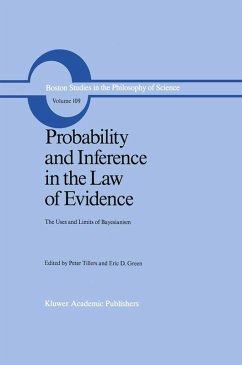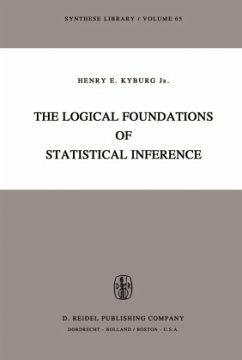
Probability and Inference in the Law of Evidence
The Uses and Limits of Bayesianism
Herausgegeben: Tillers, Peter; Green, E.
Versandkostenfrei!
Versandfertig in 1-2 Wochen
153,99 €
inkl. MwSt.

PAYBACK Punkte
77 °P sammeln!
This book explores the nature of factual inference in adjudication. The book should be useful to students of law in Continental Europe as well as to students of Anglo-American law. While a good many countries do not use the sorts of rules of evidence found in the Anglo-American legal tradition, their procedural systems nevertheless frequently use a variety of rules and principles to regulate and structure the acquisition, presentation, and evalu ation of evidence. In this sense, almost all legal systems have a law of proof. This book should also be useful to scholars in fields other than law. ...
This book explores the nature of factual inference in adjudication. The book should be useful to students of law in Continental Europe as well as to students of Anglo-American law. While a good many countries do not use the sorts of rules of evidence found in the Anglo-American legal tradition, their procedural systems nevertheless frequently use a variety of rules and principles to regulate and structure the acquisition, presentation, and evalu ation of evidence. In this sense, almost all legal systems have a law of proof. This book should also be useful to scholars in fields other than law. While the papers focus on inference in adjudication, they deal with a wide variety of issues that are important in disciplines such as the philosophy of science, statistics, and psychology. For example, there is extensive discussion of the role of generalizations and hypotheses in inference and of the significance of the fact that the actors who evaluate data also in some sense constitute the data that they evaluate. Furthermore, explanations of the manner in which some legal systems structure fact-finding processes may highlight features of inferential processes that have yet to be adequately tackled by scholars in fields other than law.












